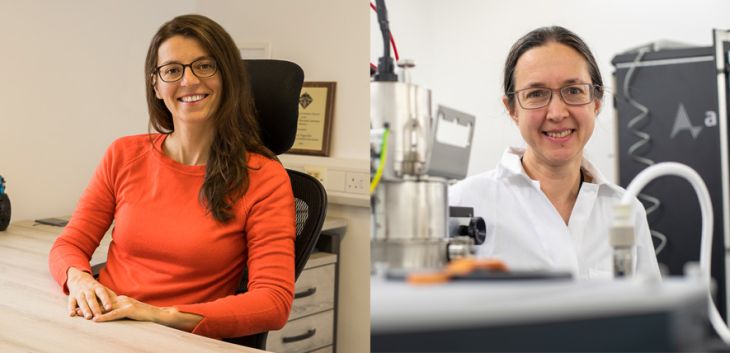Funded by the UK Department for Business, Energy and Industrial Strategy, the Chair in Emerging Technologies scheme aims to identify global research visionaries and provide them with long-term support. The awards will enable the researchers to focus on strategic approaches for taking their technology from the bench to the boardroom.
Professor Rachel Oliver, from the Department of Materials Science and Metallurgy, is a Fellow of Robinson College and Director of the Cambridge Centre for Gallium Nitride. Gallium nitride (GaN) is a rising star of the electronics and optoelectronics industries, with GaN-based solid-state lighting bringing about a revolution in how we illuminate our world. Creating porosity in GaN vastly extends the range of materials properties achievable in this key compound semiconductor material. By controlling the porosity, engineers can select the properties they need to create new device concepts or to improve existing products.
Professor Oliver's aim is to create a set of materials fabrication processes which control the structure and properties of porous gallium nitride. Alongside this, she will develop a modelling toolbox for designing new devices. By developing new devices and embedding porous GaN in the UK’s vibrant and expanding compound semiconductor industry, Oliver hopes to drive this emerging materials platform towards widespread industrial adoption, fuelling the future of the UK compound semiconductor ecosystem.
Potential applications for the new research are both wide-ranging and far-reaching. Developing the use of UV LEDs for disinfection would give healthcare professionals new weapons in the fight against viral epidemics and antibiotic-resistant bacteria. Work on microdisplays using microLEDs could improve augmented and virtual reality headsets. As well as providing immersive experiences for gamers, this technology could be used by organisations for more effective online collaboration. By reducing the need for business travel, the ecological benefits would be significant.
Professor Vignolini and her Bio-inspired Photonics group in the Yusuf Hamied Department of Chemistry have discovered that plants produce bright and vibrant colouration through organising cellulose into sub-micrometer structures that manipulate light. These natural examples have inspired Vignolini to mimic the use of biological building blocks to create sustainable colorants in the lab. She is developing a new generation of manufacturing processes to produce colours using only naturally derived biomaterials, such as cellulose, a biodegradable and abundant plant material.
Vignolini's vision is that bio-based pigments will replace current alternatives made with energy-intensive and problematic materials.
Professor Sir Jim McDonald FREng FRSE, President of the Royal Academy of Engineering, said: “The Academy places huge importance on supporting excellence in engineering and often the key to engineers fulfilling their potential in tackling global challenges is the gift of time and continuity of support to bring the most disruptive and impactful ideas to fruition.”
Silvia Vignolini is a Fellow of Jesus College, Cambridge. Rachel Oliver is a Fellow of Robinson College, Cambridge.







